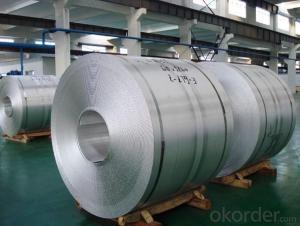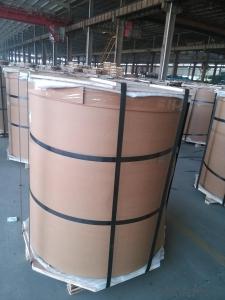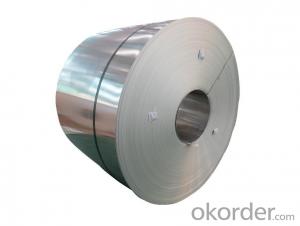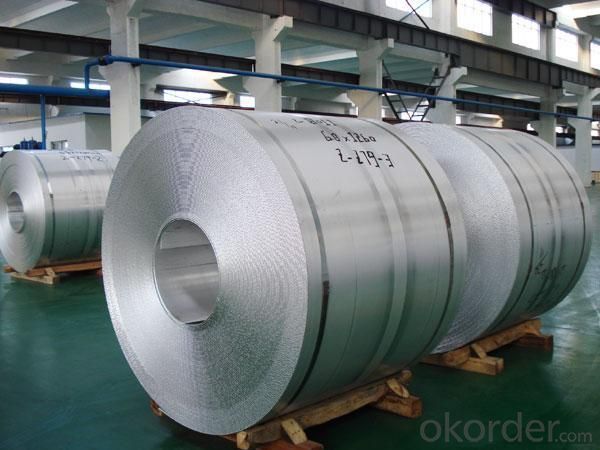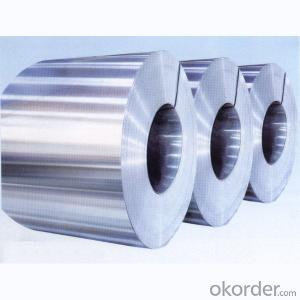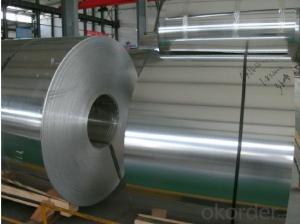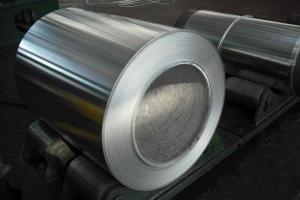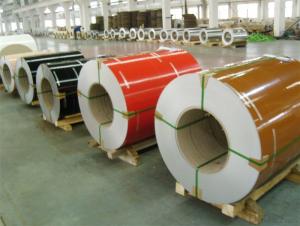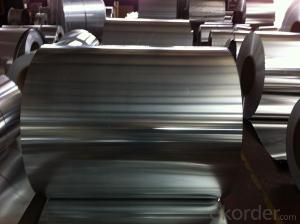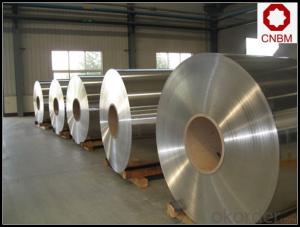1060 Aluminum Coil Wholesale - D.C AA3105 Aluminum Coils for Building Material
- Loading Port:
- Shanghai
- Payment Terms:
- TT OR LC
- Min Order Qty:
- 5 m.t.
- Supply Capability:
- 10000 m.t./month
OKorder Service Pledge
OKorder Financial Service
You Might Also Like
Specification
1.Structure of D.C AA3105 Aluminum Coils used as Building Material Description
D.C AA3105 Aluminum Coils used as Building Material widly used in decoration field. For the painting, it depends on the using evironment. If you use in the open air, we recommend the PVDF coated aluminium coils. This kind of painting can last 15-20 years. If you use in the room, we recommend PE coated aluminium coils. The price is much more competitive.
Direct Continuous Aluminium Foil Stock in Coil is one semi-finished aluminium material. This strip can be rolled down to aluminium foil.The final thickess can be 5-20 microns. Aluminium foil is soft, ductile and with a silver-white luster which can be widely used in a large scare of fields.
2.Main Features of D.C AA3105 Aluminum Coils used as Building Material
a.Competitive price---We have our own mills and can produce mill finished aluminium coils, so we can control the production cost better.
b.Professional after-sale service---We have more than 15 years exportation experience and you need not worry about the exporation problems.
c.Fast delivery time---We can control the delivery time within 35 days.
3.D.C AA3105 Aluminum Coils used as Building Material Images
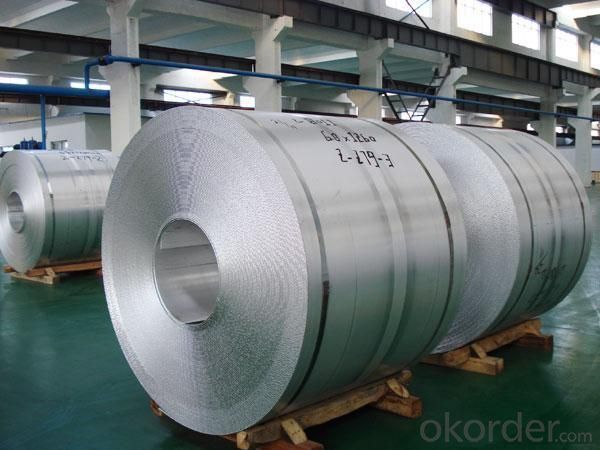
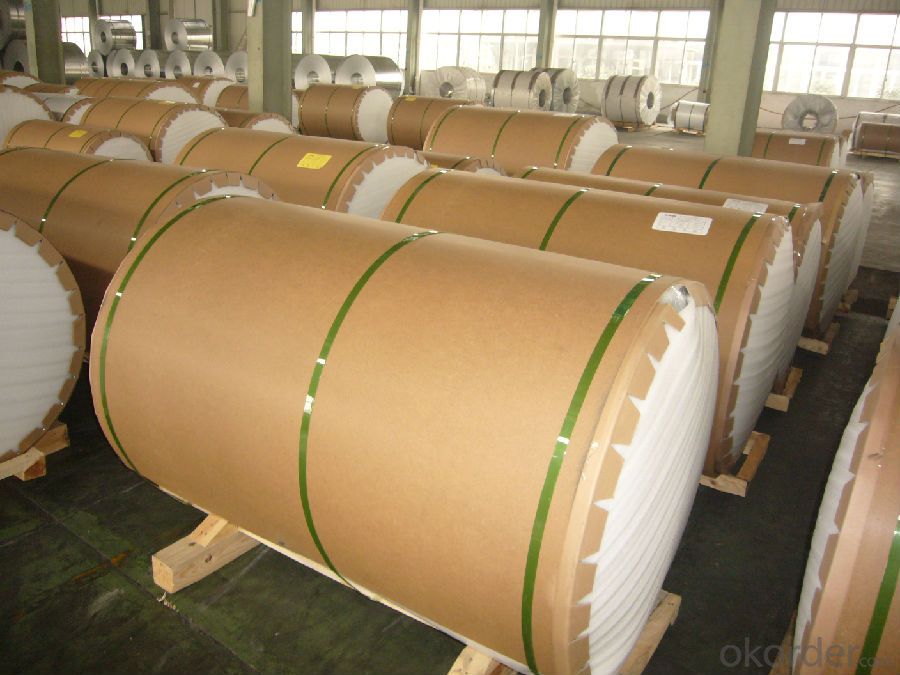
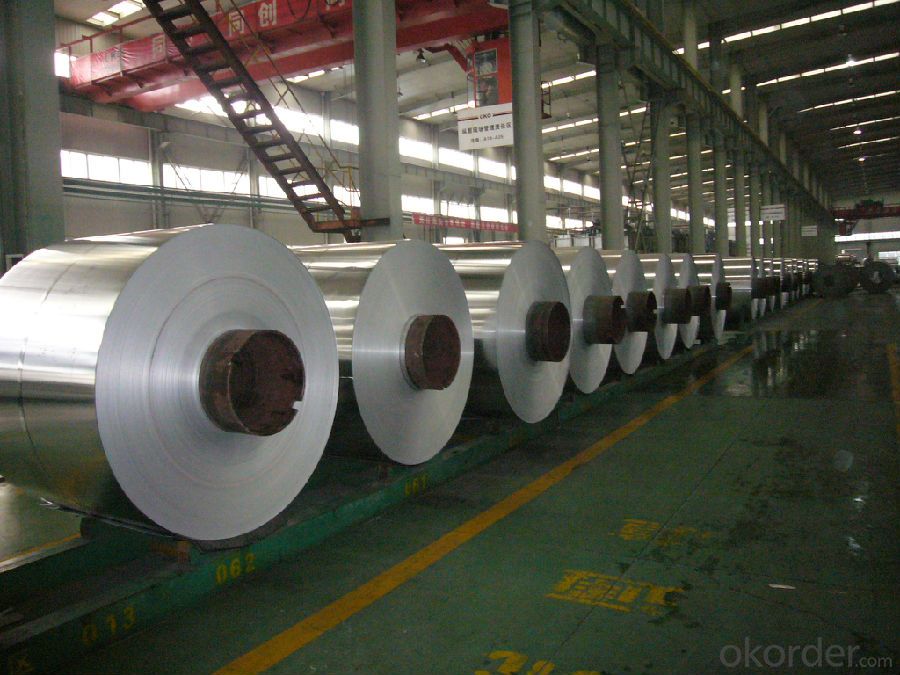
4.D.C AA3105 Aluminum Coils used as Building Material Specification
Alloy | AA3105 |
Temper | H14, H16, H18, H22, H24, H26, H32, O/F |
Thickness | 0.2mm -- 100mm |
Width | 30mm -- 1700mm |
Standard | GB/T 3880-2006,EN |
5. FAQ of D.C AA3105 Aluminum Coils used as Building Material
A.How to guarantee the quality?
Customers are welcome to our mill to visit and check the products. Besides, we can arrange a third party to test D.C AA3105 Aluminum Coils used as Building Material.
B.When will you deliver the products?
D.C AA3105 Aluminum Coils used as Building Material will be delivered within 35 days after receiving advanced payment or original L/C.
- Q: How are aluminum coils joined together to form larger panels?
- Coil joining or coil-to-panel joining is the technique employed to combine aluminum coils into larger panels. To accomplish this, aluminum coils are fed into a coil joining machine, specifically designed for seamless connection of multiple coils. To initiate the process, the individual coils are inserted into the machine. The machine then unwinds the coils and brings them together, aligning them side by side. Typically, the edges of the coils slightly overlap to ensure a secure and uninterrupted connection. Once aligned, the machine implements various methods to bond the coils together. One prevalent approach involves the application of heat and pressure. By heating the overlapping edges of the coils, the aluminum softens and fuses together. Simultaneously, pressure is applied to ensure a robust bond. Alternatively, mechanical fasteners can be utilized to join the aluminum coils. In this case, the machine punches holes through the overlapping edges and inserts fasteners, such as screws or rivets, for a secure hold. Following the joining process, the machine continues to feed the connected coils forward, facilitating continuous production of larger panels. Excess material from the overlapping edges is typically trimmed off, resulting in a sleek and seamless panel. Overall, precision and specialized machinery are essential for the process of joining aluminum coils to create larger panels. The resulting panels possess durability, lightweight properties, and find widespread application in industries such as construction, automotive, and aerospace.
- Q: How are aluminum coils processed for specific surface finishes?
- Aluminum coils are processed for specific surface finishes through a series of steps that involve cleaning, pretreatment, coating, and curing. The first step in processing aluminum coils is cleaning. This involves removing any dirt, oil, or other contaminants from the surface of the coils. Cleaning is typically done using a combination of chemical cleaners and mechanical methods, such as scrubbing or brushing. After cleaning, the coils undergo a pretreatment process. Pretreatment is essential to ensure proper adhesion of the surface finish. It involves the application of a chemical solution or coating that prepares the surface of the aluminum for the subsequent coating. This step typically includes processes like etching, desmutting, and deoxidizing, which help improve the surface quality and promote adhesion. Once the coils have been cleaned and pretreated, they are ready for coating. The specific coating method depends on the desired surface finish. Some common coating techniques include coil coating, anodizing, painting, or powder coating. Coil coating involves the application of a liquid coating onto the surface of the aluminum coils. Anodizing is an electrochemical process that creates a durable and corrosion-resistant layer on the surface. Painting and powder coating involve the application of a dry paint or powder onto the coils, which is then cured to form a protective and decorative finish. After the coating is applied, the coils go through a curing process. Curing involves subjecting the coated coils to high temperatures, which causes the coating to chemically react and harden. This step is crucial for achieving the desired properties and durability of the surface finish. Overall, the processing of aluminum coils for specific surface finishes involves a combination of cleaning, pretreatment, coating, and curing steps. These processes ensure that the coils are properly prepared and coated to achieve the desired surface finish, whether it be for protection, aesthetics, or specific functional requirements.
- Q: Which is better composite or aluminum, and what are some main differences between the two?
- I used the Easton Stealth Composite a few years back and it had the most pop of any bat I have ever used. I never seemed to miss the sweet spot, and I don't think it was necessarily because of MY skill.
- Q: How much will be burned out if the soaked and oxidized 5182 aluminum coil is melt down and reprocessed?
- Burn out rate is generally between 1% -2.5%, but that varies among plants as their actual situations are different.
- Q: Can aluminum coils be used in the production of aluminum composite windows?
- Yes, aluminum coils can be used in the production of aluminum composite windows. Aluminum coils are often used as a raw material for manufacturing aluminum composite windows due to their versatility, durability, and cost-effectiveness. The coils can be shaped and formed into various components of the windows, such as frames, sashes, and mullions, providing strength and stability to the final product. Furthermore, aluminum coils can be coated or painted to enhance the appearance and protection of the windows, making them suitable for both residential and commercial applications.
- Q: what properties etc makes us use aluminium as the material behind cans...And why does it have the properties?
- Aluminium only became popular in the sixties. Prior to that it was steel cans. You had to have a church key to open them. Aluminium is cheaper to recycle and make than steel. It always comes down to money and costs.
- Q: What are the different thicknesses available for aluminum coils?
- The thicknesses available for aluminum coils can vary, but common options typically range from 0.015 inches to 0.25 inches.
- Q: Its currently 3 AM so i can't check, but my question is:does aluminum rust slower/faster than other metals? I've basically had this bike for about 6 years, but only rid it once. Its been sitting in my backyard under a roof (safe from rain) for 6+ years. Is it safe to ride it? Also, bonus question: Does having a bike on campus make life 10x easier?
- DUMB okorder /
- Q: Aluminum coil area, with aluminum sheet area, how is not the same?
- Direct measurement length and width calculation area of aluminium plate;The aluminum coil can measure the volume of the aluminum coil and then calculate the area by dividing the thickness. You can also measure the mean diameter, calculate the perimeter, multiply the number of laps, the width, and calculate the area.
- Q: What are the different available coil weights for aluminum coils?
- The available coil weights for aluminum coils vary depending on several factors such as the thickness, width, and alloy of the aluminum. Generally, the coil weights for aluminum coils range from a few hundred pounds to several thousand pounds. For thinner gauge aluminum coils, the coil weights typically range from 1,000 to 5,000 pounds, while for thicker gauge coils, the weights can go up to 20,000 pounds or more. The specific coil weight options also depend on the capabilities and specifications of the manufacturer or supplier. It is recommended to consult with the manufacturer or supplier to determine the exact range of available coil weights for the desired aluminum coils.
Send your message to us
1060 Aluminum Coil Wholesale - D.C AA3105 Aluminum Coils for Building Material
- Loading Port:
- Shanghai
- Payment Terms:
- TT OR LC
- Min Order Qty:
- 5 m.t.
- Supply Capability:
- 10000 m.t./month
OKorder Service Pledge
OKorder Financial Service
Similar products
Hot products
Hot Searches
Related keywords
